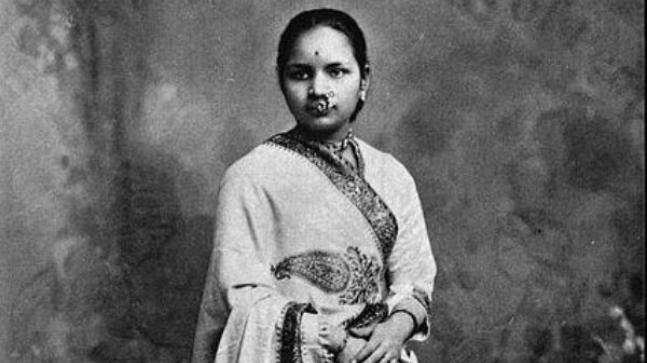Today, if a girl wants to be a doctor, she is encouraged by her parents and teachers to go for the high marks needed for medical college. But there was a time when just going to school was an uphill task for girls, that needed courage and revolutionary fervor; and back then in the late 19th century, a young married Brahmin woman aspired to study medicine and succeeded against seemingly insurmountable odds.
A girl called Yamuna was born in 1865—unwanted and mistreated by her own mother who was hoping for a son after two daughters. But the girl was brave and resilient. As was the practice in those days, she was married at age eleven to a man twenty year her senior. Again as was the custom then (which is still quite prevalent) her name is changed to Anandi. Her husband Gopal Joshi fancies himself as a social reformer and ‘allows’ her an education.
The true-grit story of Yamuna/Anandi forms the basis of Manoj Shah’s play Dr Anandibai Joshi: Like, Comment, Share, written by Geeta Manek and performed by Manasi Prabhakar Joshi. Shah is partial to minimalistic solo-actor productions, so that the story and its message can be conveyed without dilution.

Anandibai
Perhaps to appeal to a younger audience, the playwright has woven in today’s social media lingo, but the story remains powerful as it is. Anandi gives birth to a son when she is only twelve, and loses him. Even though it seems like an impossible dream, she hopes to become a doctor, so that she can help other women like herself. This was a time when a girl going to school was spat at and had stones flung at her.
When they move to Calcutta, she manages to get the support of some of the British people there, and an open invitation from an Amerian woman called Theodicia Carpenter, who offers her all help and a home if she decides to go to New York to study medicine. Against all opposition from conservatives, she makes the arduous two-month journey by ship, and Theodicia makes good on her promise to help the young woman.

Anandi gets into medical school, when there were very few white women encouraged to go for higher education. Battling the cold, near starvation and nasty letters from her suspicious husband, she gets through medical school, and returns to India in triumph as Dr Anandibai Joshi, India’s first female doctor. But she contracted tuberculous and died a few months later, when she was barely twenty-two.
She may not have been able to practice, but Anandibai’s struggle and success made it possible for women like Rakhmabai and Kadambini Ganguly to become doctors and then open the floodgates for others to follow.

indiatoday.in
Geeta Manek has infused some humour into the play and director Manoj Shah has got Manasi Prabhakar Joshi to act with admirable vivacity for two hours on a nearly empty stage with just a backdrop of green nine-yard saris that Dr Anandibai wore.
It is a fascinating story, well documented in books and television series, but it still needs to be told again and again, because it is an inspiration for women, or for anybody, who wants to fight the word ‘impossible.’






-173X130.jpg)


-173X130.jpg)
-173X130.jpg)
-173X130.jpg)
-173X130.jpg)